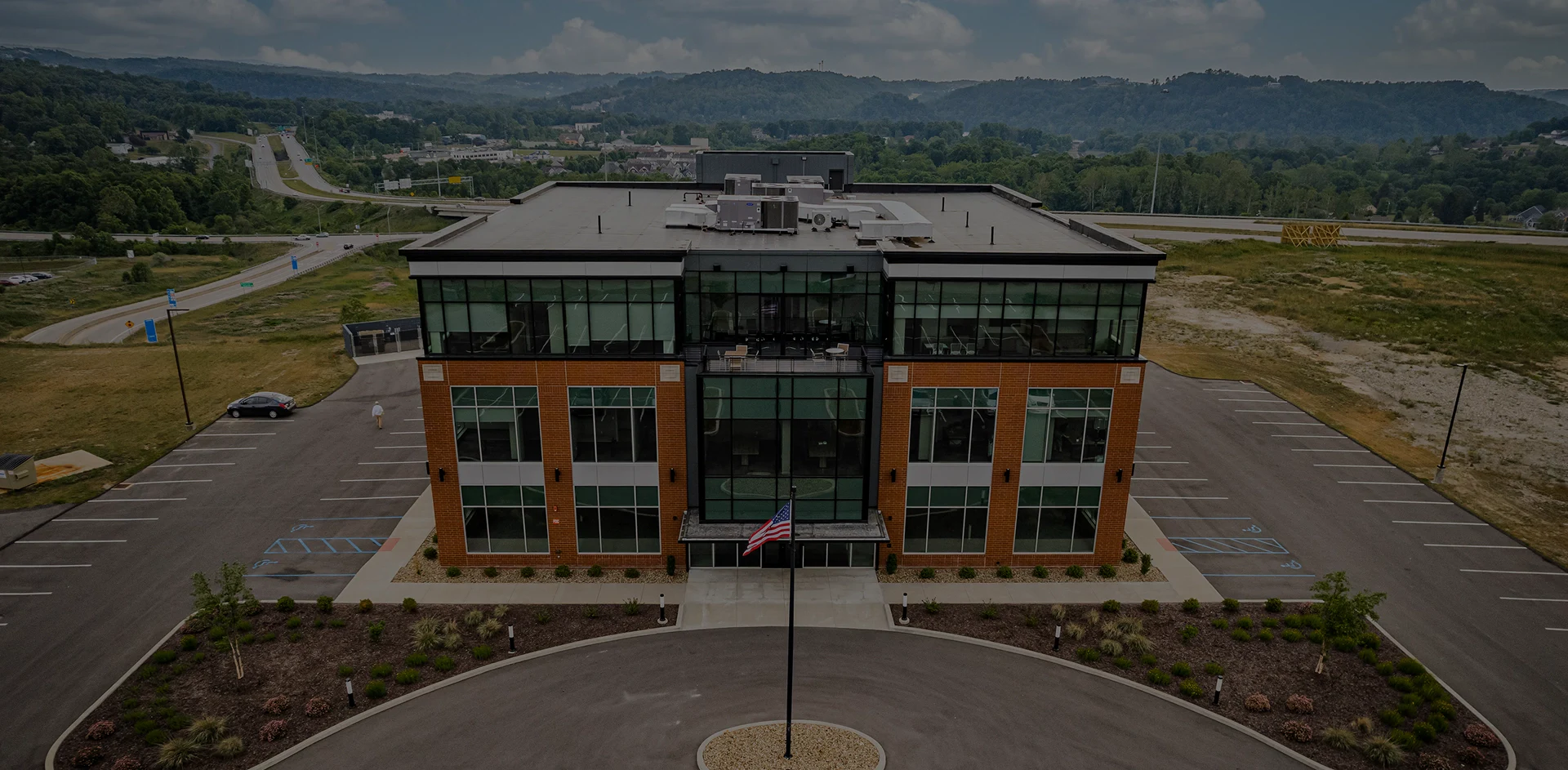Table of Contents
- Traumatic Brain Injuries May Change Your Life Forever
- What Is a TBI, and What Are the Symptoms?
- TBIs Span a Continuum From Mild to Severe
- What Are Common Treatments and Interventions for TBIs?
- TBI Victims and Their Families May Suffer Long-Lasting Consequences
- Did Someone Else’s Negligence Cause Your TBI? Call Us
Traumatic Brain Injuries May Change Your Life Forever
Whether it’s driving to a downtown restaurant, attending a football game at West Virginia University, or hiking in the surrounding mountains, Morgantown has a lot to offer both its visitors and residents. Unfortunately, many of the city’s most popular activities involve a risk of sustaining a traumatic brain injury (TBI). Despite your best efforts, you may wind up in a serious accident. If so, you may feel overwhelmed and alone.
The experienced attorneys at Desai Law are here to help individuals who have suffered traumatic brain injuries in Morgantown and the surrounding area. By pursuing compensation on our clients’ behalf, we allow them to focus on their mental and physical recoveries. Reach out today to learn more about how we can help you if you’ve sustained a TBI in an accident.
What Is a TBI, and What Are the Symptoms?
![]()
A TBI is an injury to your brain that disrupts normal brain functions. TBI most often results from a blow, bump, or jolt to the head.
Identifying the symptoms of a TBI is often challenging. The injured individual may not notice or admit to the problems that he or she is having. In some cases, even family members may not immediately understand that subtle changes in a loved one’s behavior or personality are the result of TBI.
The CDC explains that symptoms of a traumatic brain injury may fall into one of four categories:
- Physical: Physical symptoms may appear as headaches, dizziness, blurred vision, light or noise sensitivity, or problems with balance. In some cases, a person may experience nausea or fatigue.
- Thinking or remembering: The injured person may have difficulty concentrating on tasks, thinking clearly, or remembering new information.
- Emotional/mood: A TBI may make someone irritable, anxious, nervous, or sad.
- Sleep: Sleep disruptions may involve changed sleep patterns or trouble falling asleep.
Symptoms may not appear until days or weeks after an accident. If symptoms appear suddenly or worsen, you may need to rush to the emergency room. Serious symptoms may include persistent headaches, slurred speech, confusion or agitation, uneven pupils, or inability to wake. While rare, blood clots can occur after a TBI.
TBIs Span a Continuum From Mild to Severe
According to the CDC, a traumatic brain injury may fall into one of three categories: mild, moderate, or severe. No matter the category, experts recognize TBI as a process, not an event, because any TBI may lead to long-term chronic health challenges. A diagnosis of a mild TBI does not mean a short-lived injury. Even a TBI classified as mild may have consequences that persist for years.
The Mayo Clinic explains how physicians diagnose the severity of a TBI.
If you accompany a family member to the hospital after an accident, prepare to answer questions that will help inform the doctor’s assessment and treatment of the head injury:
- How did the injury happen?
- Did the injured person lose consciousness? If so, for how long?
- What was the force of the injury?
- Has the injured individual exhibited any changes in behavior, speech, coordination, or alertness?
A medical professional may attempt to question the patient and observe his or her ability to follow directions.
What Are Common Treatments and Interventions for TBIs?
For mild TBIs, doctors usually prescribe rest and over-the-counter medications for headaches. The doctor will ask family members to monitor the patient’s condition for new or worsening symptoms. More severe injuries may require emergency treatment or hospitalization. Hospital treatments may include medication to prevent seizures. Doctors may also conduct surgery to reduce brain bleeding, remove blood clots, or relieve pressure in the brain.
Rehabilitation is a common part of a treatment plan for a person with a significant TBI. Rehabilitation may start in the hospital and continue in an inpatient or outpatient facility, depending on the individual’s needs. Rehabilitation usually involves a team of specialists. The team may include occupational and physical therapists, a social worker, a speech and language pathologist, a neuropsychologist, and a vocational counselor.
TBI Victims and Their Families May Suffer Long-Lasting Consequences

When you suffer from a traumatic brain injury, you may feel anxious about your long-term physical, mental, and financial health. TBIs can forever alter the lives of victims and their loved ones. According to the National Institute of Neurological Disorders and Stroke, doctors can do little to reverse trauma-induced brain damage.
The Centers for Disease Control and Prevention (CDC) reports that falls and motor vehicle accidents accounted for the majority of TBI-related hospitalizations in one recent year. Falls represented 52 percent of all TBI-related hospitalizations, and 48 percent of all associated emergency room visits. Motor vehicle crashes accounted for 20 percent of hospitalizations for TBIs, and crashes constituted the top cause of TBI-related deaths among individuals between ages 15 and 34.
According to the CDC, moderate or severe TBI may lead to lifelong changes in an individual’s physical, emotional, cognitive, and behavioral condition. Individuals who survive a moderate or severe TBI may experience reduced life expectancy. They are also more likely to die from seizures, infections, pneumonia, and accidental drug poisonings. Over one recent five-year period, only 26 percent of individuals with moderate to severe TBIs may see their conditions improve.
Even with prompt hospital care and rehabilitation, people with moderate to severe TBI may continue to struggle five years after their accidents:
- 33 percent rely on others to help with routine activities.
- 57 percent are moderately or severely disabled.
- 55 percent are not working now, but had a job at the time of the injury.
- 12 percent live in nursing homes or other facilities.
- 50 percent return to the hospital at least once.
These numbers illustrate how both the patient and his or her family will likely need lasting support.
Did Someone Else’s Negligence Cause Your TBI? Call Us
Another person’s negligence may have created hazardous conditions that contributed to the fall or crash that caused your TBI. Unfortunately, negligence leading to TBI is a common occurrence. Business owners may fail to remove ice from their parking lots and sidewalks, or a distracted or drunk driver may run a red light and crash into you. Depending on the circumstances of your accident, you may have the right to seek damages from the party (or parties) whose negligence led to your injury.
Recovering from a traumatic brain injury will affect your financial health, but you may qualify to seek compensation for your economic losses. You will incur expenses for medical treatments, rehabilitation, and therapy. You may lose income when you cannot work. You may need vocational training to return to work, and after you do so, you may have diminished future earnings potential.
In addition to losses that directly impact your bank account, you or your loved one may suffer non-economic losses as well. You may experience grief, pain, and suffering as you process the dramatic changes in your life. If you lose a loved one to a TBI, you may wonder whether you or your loved one’s estate has the right to pursue a wrongful death claim. Note also that you will have a deadline by which you must take legal action. Failing to meet time constraints may prevent you from recovering any damages.
Brain injury cases are complex. A compassionate lawyer with experience handling TBI cases will understand the medical terminology and treatments, thoroughly review your health and rehabilitation records, appreciate the challenges in your path to recovery, and know the right questions to ask your health professionals and therapists. Contact Morgantown personal injury attorneys at Desai Law or dial (304) 974-1974 to discuss your accident and determine your eligibility to seek compensation for your injuries.
Practice Areas

